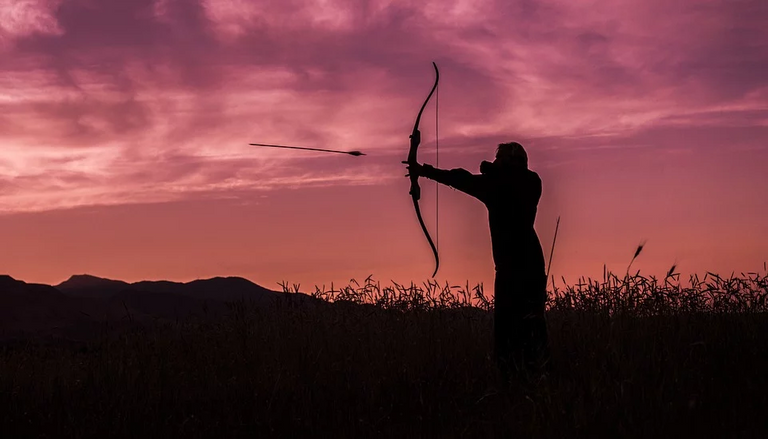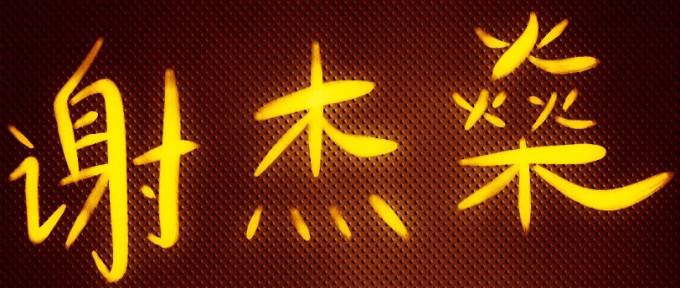
Bayani may be a man now, but the world had not changed.
His mother, Tula, still awoke him the way she normally did, prodding him with fingers and feet and a raised voice until he rolled off his bamboo mat with a groan. Getting to his feet, he tested his right arm. It was stiff. An ugly purple bruise spread across his inner biceps. But it could have been worse. Maestro taught that blades seek flesh and sticks seek bone. A properly executed stick strike could have shattered his elbow.
The healers had given him a poultice to aid recovery. He pressed the soft lump against the bruise, letting the mashed herbs within soak his flesh, and followed his mother out the hut. Just before he walked out the door, she glanced at him and said, “Forgot something, Bayani?”
The ginunting. Right.
His brain was still foggy. As soon as the celebrations were over, he’d crashed on his mat and slept dreamlessly through the night. Bayani retrieved his father’s sword, now his sword, from where it rested and tucked it into his loincloth.
The village women were preparing breakfast. Scraps of salted fish for everyone, leftovers from last night’s dinner. Most of the food went to the nursing women and the children. Perla was serving, and with a smile she handed him a palmful of fish. He savored it with several mouthfuls of well water, then spent an uneventful hour with daily chores.
The village prepared for the weekly hunt. The children, those too young to venture into the jungle, went off to play and forage nearby, supervised by the elderly, the barren, the widows and the pregnant. Everybody else, men and women alike, formed loose work parties. Bayani wandered through the chattering crowds until he found Perla, and together they joined the group Ligaya headed. The village headman, Romel Salazar, called together the team leaders, discussing areas of responsibility.
As the women prepared supplies for the hunt, the men practiced. Alejandro gathered them at a stand of banana trees, which the village used both as a food source and as targets.
Conscious of the sword hanging by his side, Bayani took his position at the shooting line. His bow seemed heavier than usual, the string harder to load. When the Maestro gave the go-ahead, the men loosed their arrows downrange. Bayani took a little more time, adjusting his aim ever so slightly, and released.
The arrow described a short, beautiful curve straight into the ground, well short of the target.
Stifling a curse, Bayani drew another arrow from his quiver and tried again. He raised his bow a little more, strained the bowstring further. But his hands betrayed him at the last moment. The bow wobbled. The arrow wobbled. The projectile landed amongst the trees, lost to sight.
Behind him, the Maestro clucked his tongue. “You’re shooting like a baby. Even the women shoot better.”
“My arm, Maestro. I can’t load the bow properly.”
“Is that right? Draw your bow.”
Bayani complied.
“Hold still.”
The Maestro walked around him, inspecting his form with a critical eye. With rough, powerful hands, he guided Bayani into a more stable, efficient posture. Taking Bayani’s right arm, he gently drew back. “You have to pull harder,” he urged.
Bayani did, drawing the arrow back further, further, until his fingers threatened to slip from the string. But the Maestro was here, and he didn’t dare let him down. Bayani willed his fingers to turn to iron, his muscles to stone. When the bowstring flexed as far as it could go, Alejandro stepped back and said, “Shoot.”
Bayani shot. This time, the arrow thudded into the banana tree.
“See?” Alejandro said, clapping Bayani’s back. “You can do it. You have to work past your weakness.”
“Yes Maestro.”
Under the Maestro’s watchful eye, Bayani loosed twelve more shots. Eight connected. Not his worst, but nowhere near good enough.
“You have to do better,” Alejandro said. “The village could be counting on your shot.”
“I will, Maestro.”
The graying man’s face tightened. “No more empty promises, Bayani. Our village is increasing, but food grows short and our storehouses are empty. We have little left to trade with. If this hunt is unsuccessful, then as men we must do without.”
Bayani nodded. For untold generations the tribe had hunted and foraged, trading the bounties of the jungle for lowland crops. But now the headman was talking about abandoning their way of life, of starting farms like the lowlanders. The ground here was not suitable for most crops; the closest the village got to farming was exchanging labor at the lowland farms for food. If they had to start a farm they needed to burn down the jungle that had given them life. But if the jungle could no longer feed them, the old ways had to go.
“I understand.”
In the village square, the priest cleared a sacred space. As his apprentices beat their drums, the holy man stamped his feet and raised his arms to the sky, offering prayers to the gods of the air and earth. Alejandro nudged Bayani towards them.
“Go on, Bayani. Join them.”
“What about you, Maestro?”
“I speak to a different god. But perhaps these will listen to you.”
Bayani had heard that the Maestro had come from far away, settling in the village long before he was born, but Bayani had never actually heard much about his past. “Oh? What god is that?”
Alejandro smiled. “That’s a story for another time. Now go, you’re needed there.”
“Yes Maestro.”

Want more stories of steel, faith and fantasy? Check out Dungeon Samurai here!
Sign up on my mailing list here to stay updated on my latest news and promotions!
It's a great preview, and you've got me interested in what the story actually develops into. The one thing that was a little off was this sentence.
I'd have changed the word "crashed." It seems too modern, too slang. I know I'm nitpicking one word out of the whole chapter but it was really the only thing I could find wrong.
Thanks for reading!